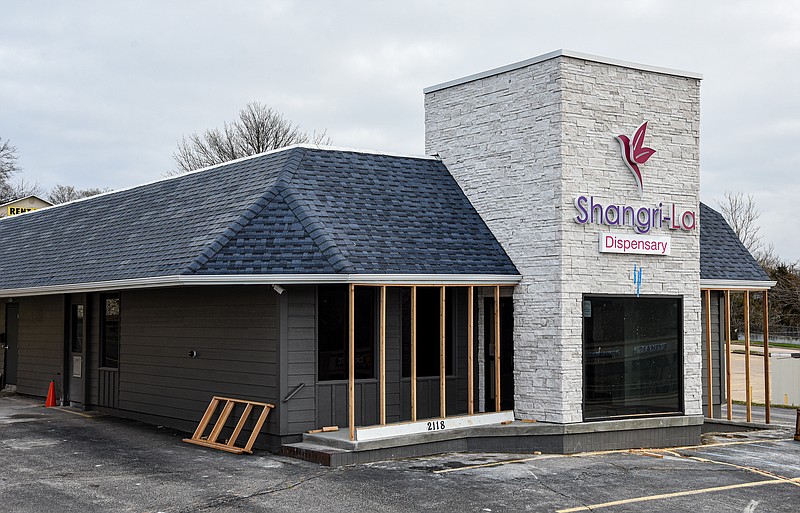With its third program year wrapped up and official state data available, Missouri's medical marijuana industry is boasting high sales numbers.
The industry's sales have blossomed to more than $190.6 million as of the end of its third program year in December, according to an annual report released by the state Department of Health and Senior Services (DHSS) this week. A total of 302 operating facilities have been approved since voters backed the 2018 ballot measure that created the program.
Products differed in popularity among participants: Buds and flowers were around 54 percent of the year's total purchases, with infused edible items in second place at nearly 20 percent. Concentrate made up 11.5 percent of purchases, while vape concentrate came in at 7.5 percent and raw pre-rolled items made up 6.2 percent of sales.
DHSS issued 119,894 patient licenses and renewed 38,347 during the third year of the program. It also issued 4,979 ID cards for facility employees and completed 267 commencement inspections.
Data projected 200 agents per facility and more than 200,000 active patients by the end of this calendar year.
The program's success came off the back of plenty of regulatory work, according to Lyndall Fraker, director of the Section for Medical Marijuana Regulation under DHSS.
"We are proud of our team members' hard work, from answering patient inquiries and processing applications to overseeing and guiding licensed facilities," Fraker said in a statement. "In order to get facilities open for business, our inspectors averaged five commencement inspections per week in program year 2021, which was a monumental undertaking."
The ballot measure that created the program requires a portion of its tax revenue to go toward Missouri veterans.
The Missouri Veterans' Health and Care Fund has received $6 million in transfers so far, while the Missouri Veterans Commission has received $8.9 million in total transfers thus far. The program has been authorized to transfer $13 million during the current fiscal year, according to a DHSS release.
"This program is not just about creating access to safe products for patients," Fraker said. "It's also about the veterans who served our country."
Output is expected to grow as time progresses: The 2021 program year saw slightly more than 35 percent of the total amount of product allowed by licenses, while the department projects this portion will increase to 63.5 percent in 2022, 85 percent in 2023, and 85.4 percent in 2024, reaching 768,527 pounds produced by that time.
Output isn't the only part of the equation that's escalating: With more than 160,000 license holders so far, around 90,000 of them are active purchases, and those numbers have steadily increased over the course of the program.
Most patients live in counties that have a dispensary, according to DHSS data, though 14.5 percent of them do not. There are dispensary locations in 49 of the state's 114 counties thus far.
Jefferson City has two dispensaries, Missouri Health & Wellness and Shangri-La Dispensary. Cole County is home to 2,364 of the state's 188,445 medical marijuana patients, according to recent DHSS data.
Missourians voted to approve the program in 2018, putting it in place with around 65 percent of the vote. The measure also initiated a 4 percent sales tax on marijuana items.
The program could expand even more if voters approve another amendment on this November's ballot.
If approved, the measure would remove state prohibitions on the sale and use of marijuana for those aged 21 and older, establish a lottery selection process to award licenses and certificates, allow those convicted of non-violent marijuana offenses to apply for release, parole or probation and have their records expunged and tax sales at 6 percent.
Those taxes would go toward veteran and drug programs and the cost of expunging criminal records.
Read the full report at https://health.mo.gov/safety/medical-marijuana/

